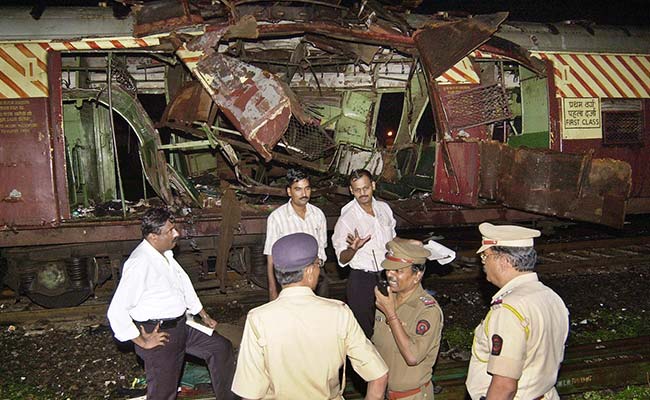
Twelve men convicted for the 7/11 serial blasts on Mumbai's local trains in 2006, are expected to be sentenced by a court today. The prosecution has said it will seek the strictest punishment, the death sentence or a life term, for those charged with murder.
Here is your 10-point cheat sheet:
Seven blasts had ripped through first class compartments on Mumbai's local trains in 11 minutes on the evening of July 11, 2006. 189 people were killed and more than 800 people were injured.
Last week, a special Maharashtra Control of Organised Crime Act (MCOCA) court convicted 12 of the 13 people arrested in the case. One was acquitted.
The accused are charged with various crimes including murder, attempt to murder, causing hurt and criminal conspiracy. They were found guilty of procuring, transporting and planting bombs.
Some were also found guilty of transporting Pakistani nationals to Mumbai through Nepal and harbouring them at their homes.
The RDX bombs were kept in pressure cookers and placed in trains on the Western line.
The blasts occurred between 6:24 and 6:35 pm, when lakhs of office-goers use Mumbai's local trains to get back home from work.
15 people accused in the 7/11 bombings are still absconding, among the masterminds, the police say. They say Pakistani nationals and members of the terror group Lashkar-e-Taiba were involved.
There was confusion in the case when the Mumbai crime branch had arrested 22 alleged members of the terror group Indian Mujahideen, including its co-founder Sadiq Sheikh. They were later later freed.
The prosecution examined 192 witnesses, including police officers and bureaucrats. Defence lawyers examined 51 witnesses and one person was called in as a court witness.
In 2008, the Supreme Court stayed the trial as it heard a petition by the accused, who had challenged the provisions of MCOCA. Trial resumed two years later, after a go-ahead from the Supreme Court.

